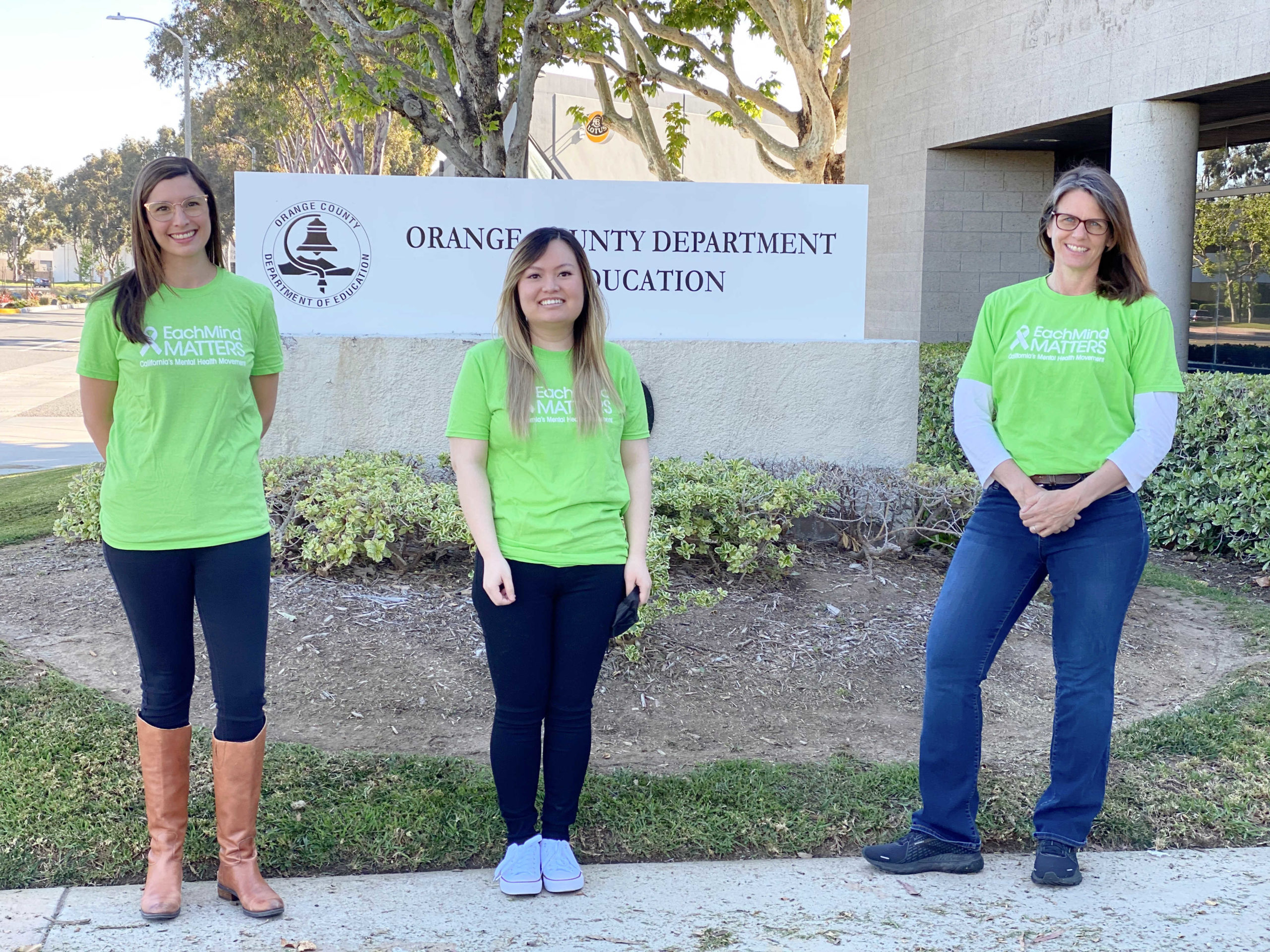
It’s been well-documented that the COVID-19 era has taken its toll on the mental health of children and adults. Yet data also shows student anxiety and depression were on the rise even before the pandemic.
According to the 2019-20 California Healthy Kids Survey, one quarter of seventh-graders and 35 percent of 11th-graders reported feeling chronically sad or experienced feelings of hopelessness within the previous 12 months. Alarmingly, more than 10 percent had suicidal thoughts during the same span.
In partnership with local schools and districts, OCDE’s education and health experts have been in overdrive to address the complex mental health needs of students, including those who have endured Adverse Childhood Experiences, or ACEs. But one program is taking the unique approach of empowering student leaders to serve as school-based champions of mental health.
The OCDE-led Student Advocates for Mental Health initiative trains young people to raise mental health awareness and to reduce stigmas through peer-influencer campaigns, workshops, activities and an annual video contest. So far, 34 schools are participating in 18 districts across the county, including 21 high schools.
With many students returning to more traditional routines, and with May designated as national Mental Health Awareness Month, we reached out to OCDE Coordinator Elke Petras and Program Specialist Stephanie Loscko to learn how the Student Advocates program started, how it’s changed during the pandemic, and how more schools can participate.
***
How did Student Advocates for Mental Health come about?
Last year, the Orange County Health Care Agency offered a two-year contract funded by Proposition 63 — known as the Mental Health Services Act — to expand mental health educational activities on school campuses. OCDE’s proposal was based on the model of students helping other students, which has proven effective with the department-led Peer Assistance Leadership (PAL) and Friday Night Live programs.
“We feel it’s a great strategy to help reduce stigma and promote resources on campus if it’s coming directly from the students,” Petras said. “We know a lot of schools have great services, but we really felt like we could help with bringing the youth voice to it, and that’s what the purpose of the contract is really to do.”
What kinds of activities are taking place?
Activities may vary from school to school, but Petras and Loscko say there are four main components.
Peer-influencer workshops — including a Mental Health 101 course for new student advocates — provide youth leaders with a foundation of mental health concepts that they can share. Peer-led campaigns allow students to take the lead on planning and promoting larger school-wide projects. Mental health awareness activities are typically one-time events, like a student-led presentation on coping skills or a day where all students wear a specific color to generate awareness about a mental health disorder.
Finally, students are encouraged to produce compelling 60-second videos aimed at driving important mental health conversations as part of the annual Directing Change Program and Film Contest.
Which groups of students become mental health advocates?
Instead of attempting to create new clubs, Petras says her team looked to tap into groups that were already well-established on campuses, including student councils, leadership classes and PAL clubs.
“I know that we also had a psychology club join us, and then with the Directing Change contest, we’re partnering with film teachers,” adds Loscko. She says some school counselors and mental health specialists had already convened groups of students to promote mental health awareness on their campuses, including the Irvine Unified School District’s Hope Squad.
All of the student groups have staff advisors, and trainings are ongoing to ensure student advocates have strong guidance around safe messaging.
How has the pandemic impacted the program?
OCDE drafted its proposal for the Student Advocates for Mental Health initiative well before the pandemic. But Petras and Loscko say most of the concepts could be easily adapted to a virtual environment.
“We didn’t have to do much tweaking,” Loscko says, “just moving to a virtual model with virtual trainings.”
What are the long-term goals of Student Advocates for Mental Health?
As the primary trainer, Loscko says her objective is to break down stigmas that might prevent a student who needs help from accessing mental health services.
“We hope that the students who we’re working with directly feel more confident in not only reaching out for support services,” she says, “but also that they continue to advocate on their school campuses with their friends and their communities to bring awareness to mental health, to ensure that when people need support, they get it and they feel comfortable doing so.”
Petras says she would like to see school programs continue beyond the life of the contract.
“It all falls under the youth development model,” she says, “where we engage young people in opportunities to conduct projects and activities on their school campus. It’s about building their own skills and their own capacity while doing things that are meaningful and important to the school.”
How can students, educators and families get involved?
For more information on Student Advocates for Mental Health, or to contact Elke Petras and Stephanie Loscko about participating, visit ocde.us/SAMH.
